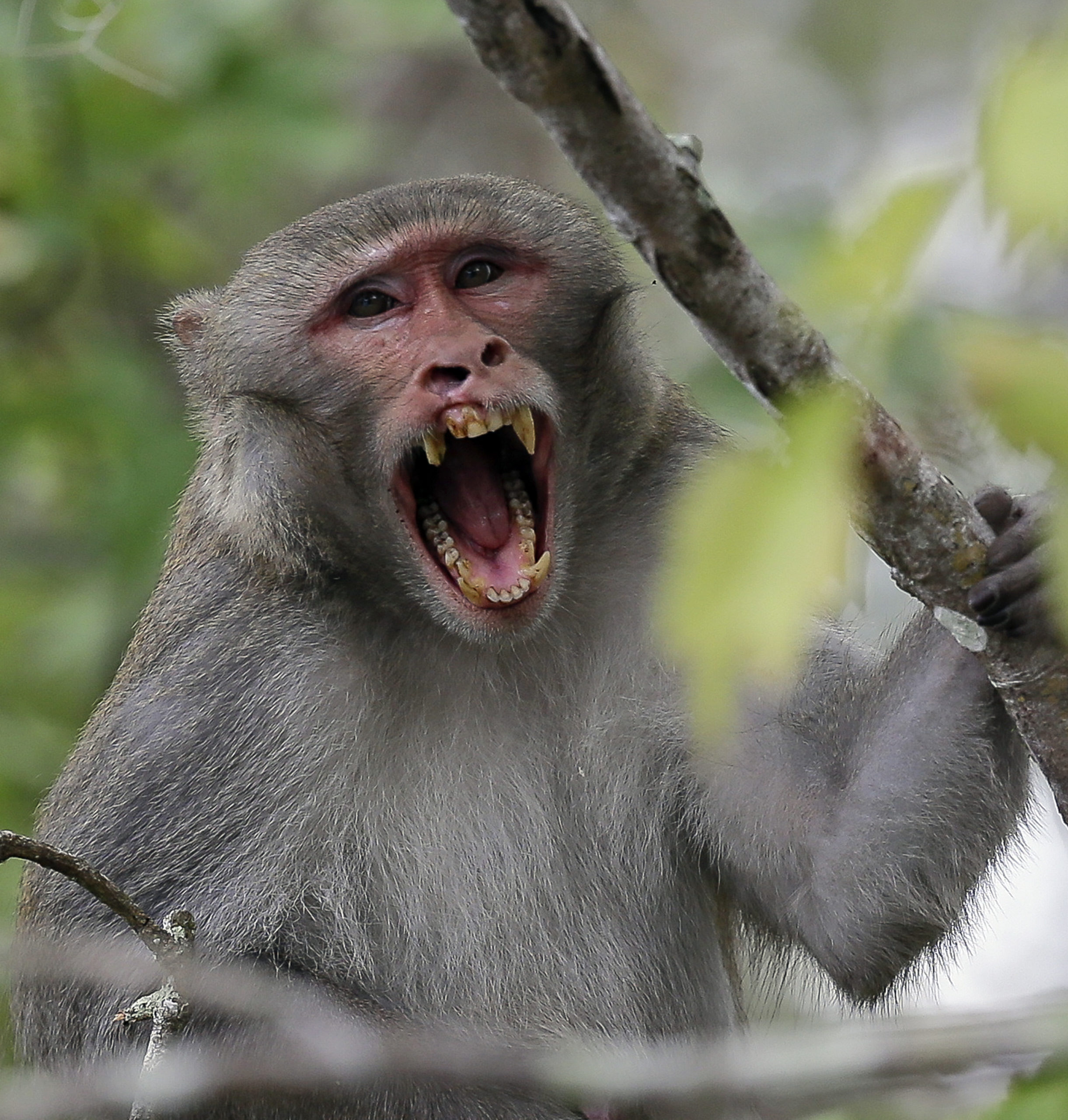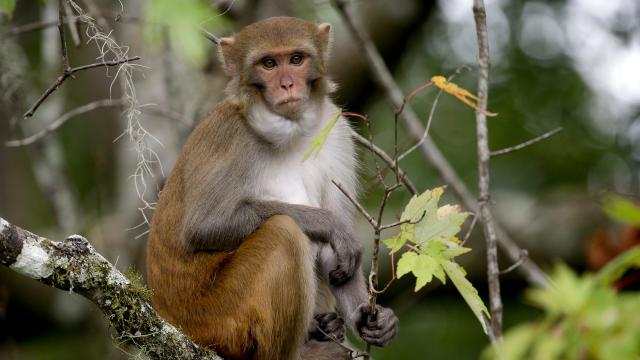As many as 30 per cent of feral rhesus macaque monkeys living in and outside of Florida state parks are infected with a strain of herpes that’s exceptionally dangerous to humans. Wildlife officials are now calling for the total removal of these free-roaming monkeys from the state.
A free-roaming monkey in Florida’s Silver Springs Park. It may or may not have herpes B. (Image: AP)
It may come as a surprise that Florida has wild monkeys, but it’s true. The rhesus macaques, native to Asia, were introduced to the state in the 1930s during the Tarzan craze as an effort to boost tourism.
Today, around 175 of these monkeys roam Silver Springs State Park, but they have spread elsewhere, roaming as far as the Ocala, Sarasota and Tallahassee regions.
New research published in Emerging Infectious Diseases, a publication run by the US Centres for Disease Control and Prevention, suggests an alarming number of these monkeys are excreting a form of herpes, called herpes B virus, or macacine herpesvirus 1 (McHV-1), which can be dangerous to humans — even fatal.

We’re naming this one “Bitey.” (Image: AP)
Researchers from the CDC, the University of Florida and the Florida Fish and Wildlife Conservation Commission analysed macaque samples (faeces and saliva) collected by trappers from 2000 to 2012 in Silver Springs State park and along the Ocklawaha River in central Florida.
They also analysed viral DNA taken from free-ranging monkeys in the park from 2015 to 2016. Collectively, these samples suggested that as many as 30 per cent of the animals tested during this period were infected with the virus. The researchers say this represents a serious public health concern and recommend that the monkeys be removed from the state, though they don’t explain how that should happen.
Herpes B virus is rare in humans, and only 50 cases have ever been documented worldwide. In these cases, the virus was contracted by humans from macaque bites and scratches while they were working with the animals in laboratories.
Of these 50 infections, 21 were fatal. The disease causes severe brain damage or death if the patient isn’t treated immediately.
“No human deaths have been reported from contracting McHV-1 from free-ranging macaques, suggesting the risk for transmission from these animals is low,” write the authors in the new study, “However, immunologic surveillance, reporting, and diagnostic investigations in humans are lacking,” adding that “Human visitors to [Silver Springs State park] are most likely to be exposed through contact with saliva from macaque bites and scratches or from contact with virus shed through urine and faeces.”
Speaking to The Associated Press, Emory University biology professor David Civitello, who wasn’t involved in the new study, said more work needs to be done to determine how prominent this virus is among Florida’s monkeys, and how easily it can be transmitted. “It will be important to figure out whether under-reporting, low quantities, or low transmissibility would explain why infections in tourists have not been reported,” he told The Guardian.
We obviously need to learn more, but this new study makes a couple of things fairly clear.
First, if you’re in Florida and you encounter a rhesus macaque, stay clear. Second, discussions of removing this invasive species are not outrageous (though the task may be exceptionally difficult given how widespread these monkeys now are; population control may be a more realistic goal than eradication).
These monkeys have, in the words of the researchers, “a high reproductive capacity, the ability to spread in geographic distribution and the potential to threaten native fauna with extinction.” Simply put, they don’t belong in the state.
